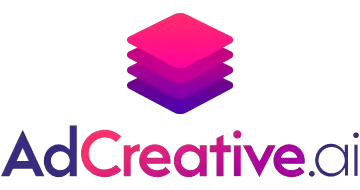How to Choose the Right AI Tools for Your Business: Complete Decision Framework
Discover the complete framework for choosing the right AI tools for your small business. Expert guide with tool recommendations and implementation strategies.
The AI Revolution Transforming Small Business Operations
The landscape of AI tools for small business has evolved dramatically, with 73% of companies already implementing or planning to implement artificial intelligence by 2025. For small business owners with 1-50 employees, choosing the right AI tools can mean the difference between staying competitive and falling behind in an increasingly automated marketplace.
Modern business AI automation isn't just for Fortune 500 companies anymore. Today's small businesses are leveraging AI to streamline operations, enhance customer experiences, and drive revenue growth with tools that were once accessible only to large enterprises. The key lies in understanding how to evaluate, select, and implement the right AI solutions for your specific business needs.
This comprehensive guide provides a proven decision framework that removes the guesswork from AI software selection, helping you identify tools that will deliver measurable results without overwhelming your team or budget.
Understanding Your Business Readiness for AI Implementation
Assessing Current Digital Infrastructure
Before diving into artificial intelligence for business, evaluate your existing technology foundation. Most successful AI implementations require clean, organized data and integrated systems. Companies with fragmented data sources often struggle with AI adoption, while those with centralized customer information see 40% faster implementation times.
Start by auditing your current software ecosystem. Document how customer data flows between your CRM, email marketing platform, accounting software, and other business tools. AI solutions work best when they can access comprehensive, real-time information about your customers and operations.
Identifying Pain Points and Opportunities
Small business automation tools deliver the highest ROI when they address specific, measurable challenges. Common areas where AI provides immediate value include:
Customer Service Optimization: Businesses using AI-powered customer service tools like Tidio or Watermelon typically reduce response times by 60% while handling 70% more customer inquiries without additional staff.
Marketing Automation: Companies implementing AI-driven email marketing through platforms like ActiveCampaign or GetResponse see average revenue increases of 25-30% through personalized customer communications.
Content Creation and Management: Tools like Frase and MarketMuse help small businesses create SEO-optimized content 5x faster than traditional methods, with many users reporting 40% improvements in search rankings.
Budget and Resource Planning
Effective AI implementation strategy requires realistic budget planning. Most small businesses find success starting with AI tools in the $50-500 monthly range, gradually expanding as they prove ROI and develop internal expertise.
Consider both direct costs (software subscriptions) and indirect costs (training time, integration complexity, data preparation). Tools like Taskade offer comprehensive AI project management starting at $8/month, making them accessible for businesses testing AI adoption without major financial commitment.
The Complete AI Tool Decision Framework
Step 1: Business Function Mapping
AI customer service tools represent one of the most accessible entry points for small businesses. Start by mapping your core business functions and identifying where AI can provide immediate impact:
Customer Communication: ChatNode and Botpress enable 24/7 customer support with sophisticated chatbots that handle routine inquiries, freeing your team for complex customer needs.
Sales and Lead Generation: Smartlead automates personalized outreach campaigns, while Hunter helps identify and verify prospect contact information with 95% accuracy.
Content Creation: Pictory transforms blog posts into engaging videos automatically, while Murf creates professional voiceovers for marketing materials without expensive recording equipment.
Step 2: Integration Requirements Assessment
Business process automation success depends heavily on how well new AI tools integrate with your existing software stack. Before selecting any AI tool, evaluate:
API Compatibility: Ensure the AI tool can communicate with your current CRM, email platform, and accounting software. Tools like Make specialize in connecting different software platforms, enabling complex automations between AI tools and existing business systems.
Data Flow Requirements: AI tools need access to relevant data to function effectively. Coupler IO helps synchronize data between different platforms, ensuring your AI tools have the information they need for optimal performance.
User Interface Consistency: Choose AI tools that match your team's technical comfort level. Zoho offers a comprehensive suite of AI-enhanced business tools with consistent interfaces, reducing training time and improving adoption rates.
Step 3: Scalability and Future-Proofing
Select AI tools that can grow with your business. Platforms like Relevance AI offer flexible pricing tiers and feature sets that accommodate businesses from startup to enterprise scale, preventing the need for costly migrations as you grow.
Consider the vendor's development roadmap and commitment to AI advancement. Tools from established companies like Google Workspace continuously add new AI features, ensuring your investment remains current with technological developments.
AI Tool Categories and Selection Criteria
Customer Relationship Management (CRM) AI

Modern CRM systems with AI capabilities transform how small businesses manage customer relationships. Zoho CRM includes AI-powered lead scoring, sales forecasting, and customer behavior analysis that helps businesses prioritize high-value prospects and improve conversion rates.
Key Selection Criteria:
- Predictive lead scoring accuracy
- Integration with existing communication tools
- Automated task and follow-up scheduling
- Customer sentiment analysis capabilities

folk CRM offers a more streamlined approach, focusing on relationship intelligence and automated contact management that's particularly effective for service-based businesses and consultancies.
Marketing and Advertising AI

AI-powered advertising platforms like AdCreative AI generate high-converting ad creatives automatically, analyzing millions of successful advertisements to create compelling visuals and copy. Small businesses using this platform typically see 30-50% improvements in ad performance within the first month.

Predis specializes in social media content creation, generating platform-specific posts, hashtags, and engagement strategies based on your industry and audience demographics.
Advanced Marketing Analytics: Amplitude provides deep customer behavior insights, while Similarweb offers competitive intelligence that helps small businesses identify market opportunities and optimize their digital strategy.
Content Creation and Management AI

Content creation represents one of the highest-impact areas for small business automation tools. Descript revolutionizes video and podcast editing with AI-powered transcription, editing, and voice cloning capabilities that reduce production time by 70%.
SEO and Content Optimization: SE Ranking combines traditional SEO tools with AI-powered content suggestions, while Search Atlas provides comprehensive keyword research and content optimization recommendations.
Visual Content Creation: Synthesia creates professional videos with AI avatars, eliminating the need for expensive video production while maintaining high-quality results. Creatify specializes in product videos for e-commerce businesses.
E-commerce and Sales AI

E-commerce businesses benefit significantly from AI-powered optimization tools. Helium 10 provides comprehensive Amazon selling tools with AI-driven keyword research, listing optimization, and inventory management.
Inventory and Pricing Intelligence: RestockPro uses AI to optimize inventory levels and predict demand patterns, while Sellerboard provides intelligent profit analysis and PPC optimization for Amazon sellers.
Store Building and Optimization: Dropizi and WiziShop offer AI-powered e-commerce platforms that optimize store layouts, product recommendations, and checkout processes automatically.
Communication and Customer Service AI

AI customer service tools can handle 80% of routine customer inquiries without human intervention. ManyChat excels at Facebook Messenger and Instagram automation, creating sophisticated conversation flows that nurture leads and support customers 24/7.

ThriveDesk combines traditional helpdesk functionality with AI-powered response suggestions and sentiment analysis, helping small teams provide enterprise-level customer support.
Analytics and Business Intelligence AI

Zoho Analytics transforms raw business data into actionable insights through AI-powered report generation and predictive analytics. Small businesses using these tools make data-driven decisions 60% faster than those relying on manual analysis.
Advanced Tracking and Attribution: Hyros provides sophisticated customer journey tracking, while AnyTrack specializes in conversion attribution across multiple marketing channels.
Implementation Strategy and Best Practices
Phase 1: Foundation Building (Months 1-2)
Data Preparation and System Integration
Begin your AI implementation strategy by establishing clean, accessible data sources. Tools like Octoparse help extract and organize data from various sources, while Zenrows provides reliable web scraping capabilities for market research and competitive analysis.
Team Training and Change Management
Successful AI adoption requires team buy-in and proper training. Start with user-friendly tools like Quillbot for content enhancement and Reclaim for intelligent calendar management. These tools provide immediate value while introducing your team to AI capabilities gradually.
Phase 2: Core Implementation (Months 3-4)
Customer-Facing AI Deployment
Implement customer-facing AI tools that provide immediate value to both your business and customers. OptiMonk creates intelligent website popups and personalization, while Typeform uses AI to optimize form completion rates and data collection.
Internal Process Automation
Deploy AI tools that streamline internal operations. Taskade AI Project Manager helps teams collaborate more effectively with AI-powered project planning and task management, while Xero automates financial reporting and expense categorization.
Phase 3: Advanced Optimization (Months 5-6)
Cross-Platform Integration and Automation
Connect your AI tools for maximum efficiency. ClickMagick provides comprehensive link tracking and funnel optimization, while ConvertFlow creates personalized customer journeys across multiple touchpoints.
Performance Optimization and Scaling
Fine-tune your AI implementations based on performance data. VWO enables sophisticated A/B testing of AI-powered features, while DashThis consolidates performance metrics from all your AI tools into actionable reports.
Measuring ROI and Success Metrics
Key Performance Indicators (KPIs)
Operational Efficiency Metrics:
- Time saved on routine tasks (target: 40-60% reduction)
- Customer response time improvements (target: 50-70% faster)
- Content creation speed increases (target: 3-5x faster)
- Lead qualification accuracy (target: 80-90% improvement)
Revenue Impact Measurements:
- Customer acquisition cost reduction (target: 20-40% decrease)
- Customer lifetime value increases (target: 25-35% improvement)
- Conversion rate optimization (target: 15-30% increase)
- Revenue per employee growth (target: 20-50% increase)
Tools for Performance Tracking
Visitor Queue identifies website visitors and tracks engagement with AI-powered tools, while Windsor AI provides comprehensive attribution modeling across all marketing channels and AI implementations.
Zonka Feedback collects and analyzes customer satisfaction data, helping you understand how AI implementations impact customer experience and satisfaction levels.
Common Implementation Challenges and Solutions
Data Quality and Integration Issues
Many small businesses struggle with fragmented data across multiple platforms. Linkmybooks helps e-commerce businesses synchronize financial data, while ZeroBounce ensures email list quality for marketing automation tools.
Team Adoption and Training
Gradual implementation and comprehensive training are crucial for success. Start with intuitive tools like Beehiiv for newsletter automation and Sendible for social media management, which offer excellent user interfaces and extensive documentation.
Budget Management and ROI Concerns
Begin with affordable, high-impact tools that demonstrate clear value. Systeme IO provides all-in-one marketing automation starting at $27/month, while Moosend offers enterprise-level email marketing capabilities at small business prices.
Future-Proofing Your AI Strategy
Emerging AI Trends for Small Businesses
Voice and Conversational AI: Tools like Julius AI are making natural language processing accessible to small businesses, enabling more sophisticated customer interactions and internal data analysis.
Visual AI and Computer Vision: HeyGen leads the way in AI video generation, while AI Studios provides comprehensive video production capabilities for businesses without video expertise.
No-Code AI Solutions: Platforms like Softr enable small businesses to build AI-powered applications without technical expertise, democratizing access to custom AI solutions.
Building Scalable AI Infrastructure
Cloud-Based Solutions: Cloudways provides managed hosting optimized for AI applications, ensuring your tools perform reliably as your business grows.
API Management: CustomGPT AI allows businesses to create custom AI assistants trained on their specific data, providing scalable customer service and internal support capabilities.
Conclusion: Your AI Transformation Roadmap
Choosing the right AI tools for small business requires a strategic approach that balances immediate needs with long-term growth objectives. The key to successful business AI automation lies in starting small, measuring results, and scaling gradually based on proven ROI.
The decision framework outlined in this guide provides a systematic approach to AI software selection that minimizes risk while maximizing potential returns. By focusing on tools that integrate well with existing systems and provide measurable business value, small businesses can compete effectively with larger competitors while maintaining the agility and personal touch that defines their success.
Remember that successful artificial intelligence for business implementation is not about adopting every available tool, but about choosing the right combination of solutions that address your specific challenges and growth objectives. Start with one or two high-impact areas, prove the value, and expand your AI capabilities systematically.
The businesses that thrive in the AI-driven economy will be those that embrace these technologies thoughtfully and strategically, using them to enhance human capabilities rather than replace the personal relationships and customer focus that drive small business success.
Ready to begin your AI transformation? Start by auditing your current processes, identifying the highest-impact opportunities, and selecting your first AI tools based on the criteria outlined in this framework. The future of small business success increasingly depends on making smart AI investments today.
For more resources on implementing AI tools in your business, explore our comprehensive guides on specific AI categories and detailed tool comparisons. Read more from AI Bloom to stay updated on the latest AI trends and opportunities for small businesses.








